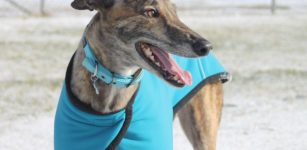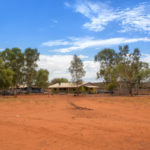Greyhound Racing to be Banned in NSW

Early last year, the ABC’s Four Corners program exposed the grisly reality of greyhound racing – a sport attracting $1 billion in bets annually and helping to fill government coffers.
The investigation found that live animals were being used as bait in a number of training farms in NSW, Queensland and Victoria.
It also uncovered that the dogs themselves were being subjected to various forms of physical abuse, and regularly put to death for failing to meet racing standards.
An End to Greyhound Racing
Today, NSW Premier Mike Baird released a statement saying:
“In response to widespread illegal and unconscionable activity, including the slaughtering of tens of thousands of dogs, I can today announce that NSW is putting an end to greyhound racing.”
He referred to a recently released report by the Special Commission of Inquiry into the Greyhound Racing Industry in NSW, which was highly critical of:
The mass killing of greyhounds
The report found that “[i]n NSW in the last 12 years… somewhere between 48,891 and 68,448 dogs were killed because they were considered too slow to pay their way or were unsuitable for racing.”
The widespread practice of live baiting
The report referred to “a trainer, who admitted to engaging in live baiting, testified that about 10-20% of trainers engaged in live baiting.”
The systemic deception of the public
It found that 180 greyhounds per year sustain catastrophic injuries during races such as skull fractures or broken backs that result in their immediate death, but “Greyhound Racing NSW had adopted a policy of deliberately misreporting the extent of injuries suffered by greyhounds at racetracks.”
An industry incapable of reform
The report found that “it appears unlikely that the issue of the large scale killing of healthy greyhounds by the industry can be addressed successfully in the future.” In fact, the report found that, “such is the culture of the industry and some of its leaders that it is no longer, if it ever was, entitled to the trust of the community.”
Jobs and Dogs at Risk
Mr Baird has noted that “there are over 1000 direct jobs in the industry and nearly 6000 registered owners of greyhounds”, and that many jobs will be lost as a result of the decision.
He has recognised that “[d]og racing can be an important part of the social fabric of regional towns. And, of course, having a punt on the dogs over a few beers is good fun for many people.”
However, he believes the problems with the industry outweigh the benefits.
The government says it will be working with the industry and RSPCA to “help minimise the pain as best we can for the innocent industry participants as we work towards an orderly industry shutdown.”
But many are asking, what will become of the tens of thousands of greyhounds that are no longer profitable to the industry?






